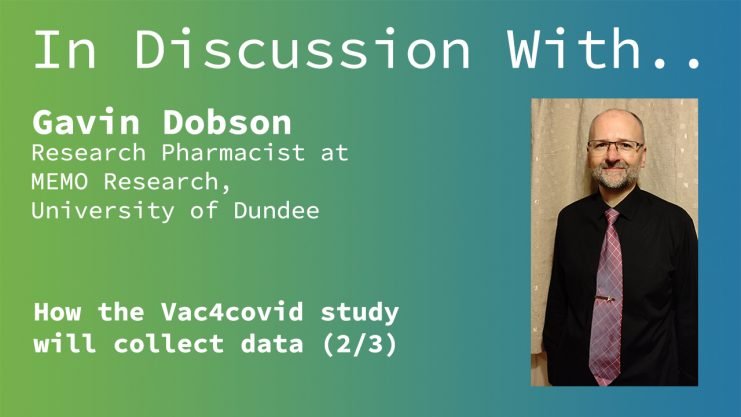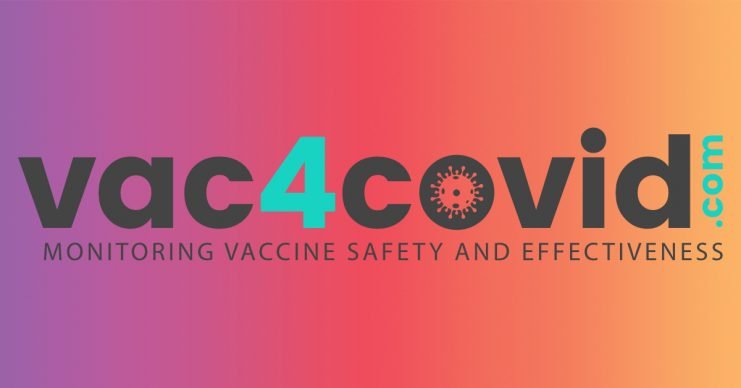Advertisment
How the Vac4covid study will collect data

Interview and article by Christine Clark.
Gavin Dobson, Clinical Trials Pharmacist at MEMO Research explains the practical details of the Vac4covid study.
The Vac4covid study will recruit at least 200,000 people across the UK. This should enable the researcher s to identify very rare vaccine-associated adverse events such as Guillain-Barré Syndrome and narcolepsy. “Participants will be recruited via many routes including news articles, press releases, social media, contacting people with an interest in clinical trials, advertising and word of mouth. Many vaccine centres, GP surgeries and community pharmacies are already displaying posters to raise awareness of Vac4covid”, explains Mr Dobson.
Ideally, potential participants will join the study before vaccination but study entry is still permitted at the time of vaccination and after vaccination. “Because participants provide a baseline picture of their health prior to vaccination, they are the control group until they receive the vaccination”, says Mr Dobson. Collecting information before and after vaccination is important to help to determine which effects, if any, are really due to the vaccine. People who do not end up being vaccinated, for example those who cannot be vaccinated or those who decline vaccination, can still participate in the study.
Vac4covid is monitoring all UK-approved Covid vaccines. At present these comprise Oxford-AstraZeneca, Pfizer-BioNTech and Moderna but others will be added as they become available.
After registering with Vac4covid (on the Vac4covid website) and completing demographic and medical information, participants will be sent an email reminder asking them to complete a follow-up form once per month. This form asks if there have been any changes to their health and usually takes only a minute or two to complete. When participants inform us of their vaccination(s) the email reminders are sent weekly for 4 weeks before reverting to monthly.
“The study is expected to run for approximately three years but some participants may be involved for longer or shorter, depending on when vaccination becomes available to them. If we are required by the MHRA to change the duration of the study, for example due to changes in the vaccination programme, we will inform participants directly. Completing the follow-ups takes only a minute or two, so we hope that participants will stay for the duration”, says Mr Dobson.
The study is entirely web-based and can be accessed via a desk-top computer, tablet or smart phone. There is no app, no paperwork and “the version that can be used on smart phones is particularly good as well”, notes Mr Dobson.
Read and watch the full series on our website or on YouTube.
Find more on vac4covid here
- https://twitter.com/vac4covid
- https://www.facebook.com/VAC4COVID
- https://www.memoresearch.com/
- https://www.vac4covid.com/






